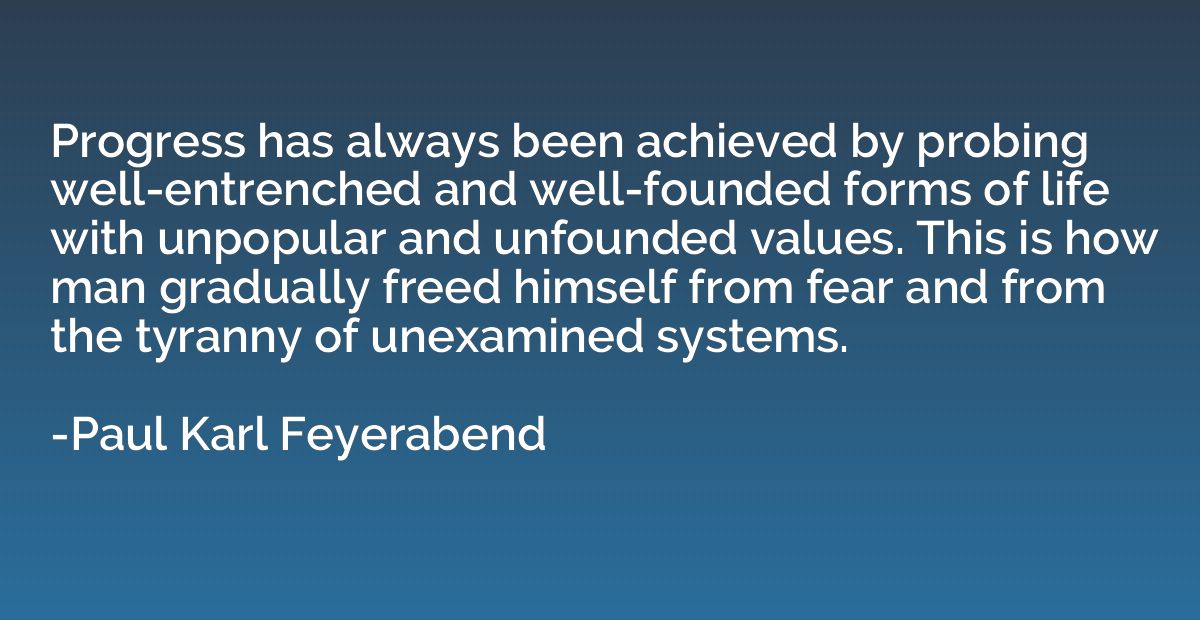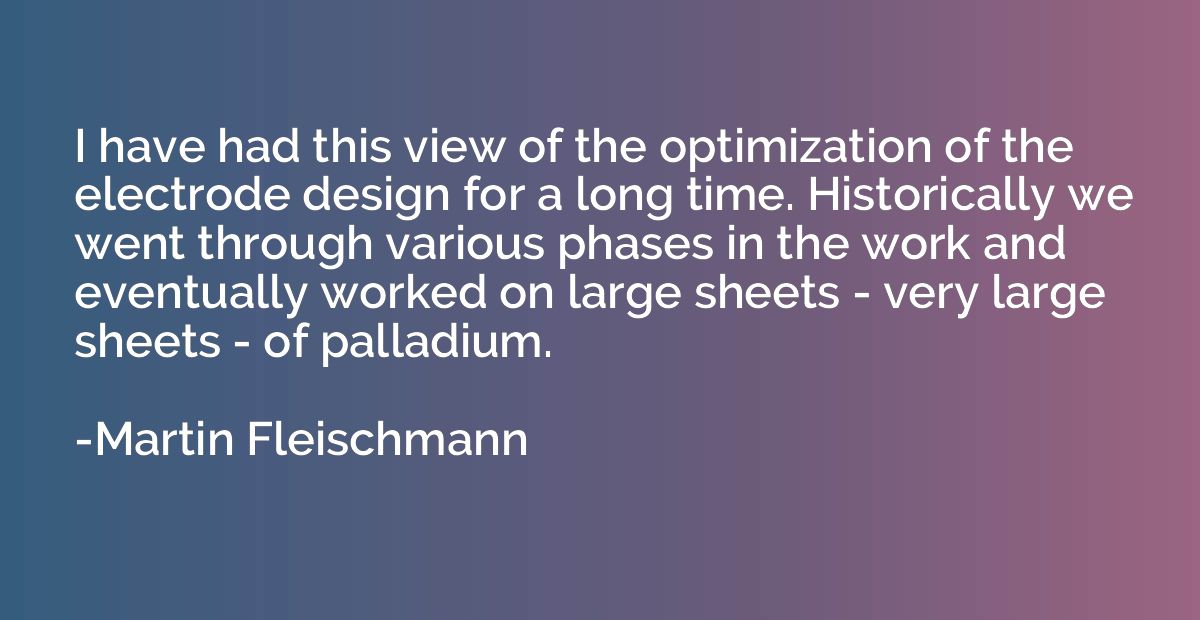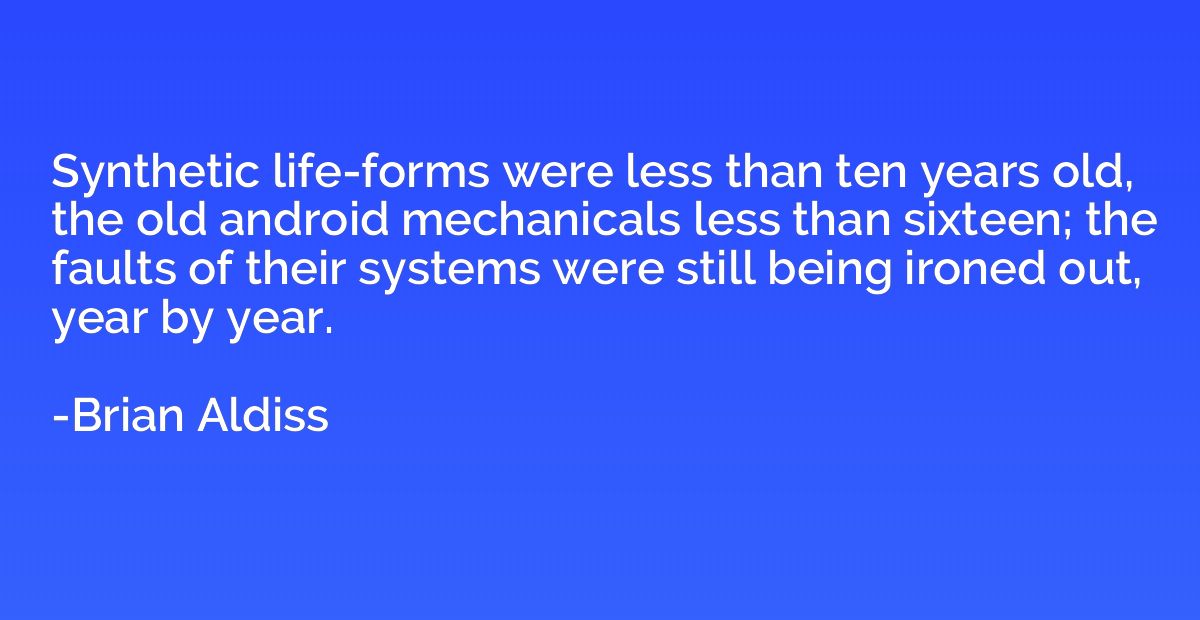Quote by Paul Karl Feyerabend
Progress has always been achieved by probing well-entrenched and well-founded forms of life with unpopular and unfounded values. This is how man gradually freed himself from fear and from the tyranny of unexamined systems.

Summary
This quote suggests that progress and liberation can only be attained by challenging established norms and beliefs. It highlights the importance of daring to question deeply ingrained values and ideologies, even if they are widely accepted and supported. By doing so, individuals can gradually overcome fear and break free from oppressive and unquestioned systems that inhibit growth and development. The quote asserts that progress often stems from embracing unpopular and innovative ideas in order to create a more enlightened and liberated society.














